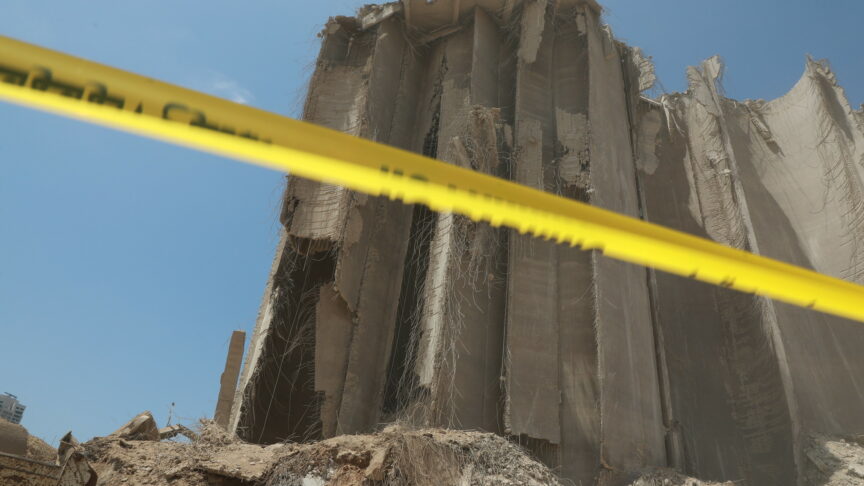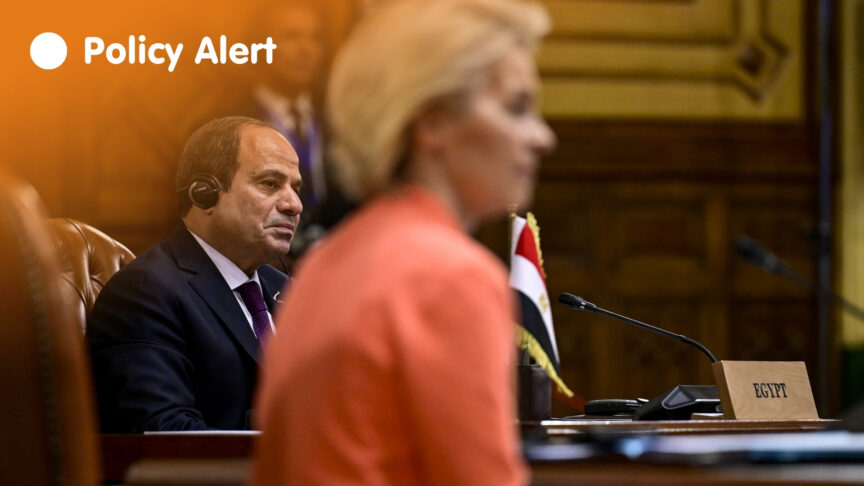Lebanon: The cost of impunity
The August 2020 explosion left Lebanon in disarray, and thus far, the country’s principal political parties have united to delay, impede, and undermine the investigation
More than a year on from the tragic explosion that tore through the port of Beirut, the Lebanese inquiry into the blast is yet to provide answers about who was responsible. In fact, the embattled efforts of different judges to investigate have come to symbolise Lebanon’s entrenched culture of impunity, which systematically shields the country’s governing elite from accountability.
Lebanon’s leaders are directly implicated in the blast, having been warned about the stored explosives that caused it. Lebanon’s main political parties have therefore united in their efforts to delay, obstruct, and undermine the domestic investigation. Over the past year, their members have systematically refused to appear for questioning, filed legal complaints against the investigative judge, and called for his dismissal. In February this year, Fadi Sawan, the first judge tasked with heading the investigation, was removed by Lebanon’s highest court for “bias” following complaints filed by two ministers whom he had accused of criminal negligence.
Similar attempts have been made to remove his successor, judge Tarek Bitar. Since assuming his position, Bitar has made multiple requests to lift the immunity of a number of high-ranking politicians and ministers so that they can be questioned on the suspicion of criminal negligence, including former prime minister Hassan Diab. Lebanese politicians have used legal procedures to cause the investigation to be suspended three times already.
Alongside this, they have launched a smear campaign against Bitar, attempting to cast doubt on his impartiality and accusing him of politicisation. In October, Hezbollah’s secretary general, Hassan Nasrallah, claimed that Bitar was using “the blood of victims to serve political interests.” Shortly afterwards, he went even further by accusing the judge of targeting political allies of Hezbollah and demanding his dismissal.
Attempts to remove Bitar have, however, failed thus far. As a result, Lebanon’s politicians have resorted to a strategy they have honed over decades: linking demands for accountability and justice to the threat of more violence or another civil war. Indeed, the country’s former finance minister Ali Hassan Khalil – against whom Bitar has issued an arrest warrant – told local media that the domestic investigation threatens to push Lebanon toward renewed social strife. Officials linked to allied Shia parties Hezbollah and the Amal Movement warned on 12 October that a failure to remove Bitar would lead to “trouble on the streets”. And so it transpired that just two days later supporters of Hezbollah and Amal marched to Beirut’s Justice Palace to demand Bitar’s dismissal. The demonstration triggered the worst street violence Lebanon has witnessed in more than 13 years, leaving seven people dead and many more injured.
The failures of the domestic investigation are indicative of the wider collapse of governance in Lebanon’s political system. Even in the face of a crippling financial meltdown – coupled with a deteriorating humanitarian crisis – Lebanon’s sectarian leaders appear to prefer to stay the course towards total collapse rather than enact reforms that could undermine their grip on power. Indeed, several Shiite ministers aligned with Hezbollah have recently pledged to boycott cabinet meetings until their demands to dismiss Bitar are met. For them and their colleagues, this has the double benefit of also further postponing overdue reforms. It also puts Lebanon on a path to recurrent, violent security incidents.
The European Union is politically incapable, and for the most part unwilling, to deal with another refugee wave
This crisis presents many problems for Europe. For one, Lebanon is home to over 1.5 million Syrian refugees, 90 per cent of whom are currently living in extreme poverty. This is already a recipe for mass migration, and Lebanese citizens are also already leaving in significant numbers. Continued degeneration in the economic and humanitarian situation will make further flight inevitable. And if recent events in Europe – notably the Belarus-Poland border crisis – have underlined one thing, it is that the European Union is politically incapable, and for the most part unwilling, to deal with another refugee wave.
If the EU wants to avoid such an eventuality, it is essential that the bloc increase its support for Lebanon’s domestic accountability efforts. The EU and its member states should do so by using their leverage, including the threat of targeted sanctions, to pressure politicians to desist from obstructing justice and introduce comprehensive legal and political reforms to ensure the independence, impartiality, and accountability of the judiciary.
Beyond this, however, if the past year has shown one thing, it is that Lebanon’s political establishment is likely to remain impervious to such pressure. During his recent trip to Saudi Arabia, Emmanuel Macron committed to supporting reform in Lebanon. This represents a promising start. But, in order to have any prospect of success, Macron will have to work with EU member states to find more concrete and creative ways of supporting domestic accountability efforts.
Such routes forward exist. Firstly, as members of the United Nations and the Human Rights Council, EU member states should support and assist in the establishment of an international, independent, and impartial fact-finding mission into the blast – a demand that has been made countless times by international and Lebanese human rights groups, survivors, and families of the victims over the past year. Such an investigation would not replace, but rather complement, the domestic inquiry by ensuring that facts are established in a thorough and transparent way.
Secondly, the EU should invest in local partners, institutions, and leaders committed to domestic accountability efforts. This includes supporting advocacy and human rights institutions such as the Beirut Bar Association, SEEDS for Legal Initiatives, and Legal Agenda, all of which have worked to defend the rights of the families of the victims of the blast.
Finally, in view of the upcoming parliamentary election scheduled for March 2022, the EU should work to create space for reformist candidates who could lead future reform processes. It only takes ten members of parliament to submit a draft law, and so a victory for even just a handful of these candidates could create a valuable channel through which to take on the Lebanon’s crooked governance system – and begin to dismantle the country’s regime of impunity.
While the EU’s leverage undoubtedly remains limited, it is clear that it can and should take steps to stand behind Lebanese society in showing the country’s corrupt leaders that impunity will not be the price that they pay for stability. After all, if Lebanon’s ruling elite are able to shield themselves from a tragedy as grave as the Beirut port explosion, what its members could get away with next does not bear contemplating.
Alessandra Thomsen is currently completing her master’s degree in international security with a specialisation in the Middle East at Sciences Po’s Paris School of International Affairs. She was an intern with ECFR until December 2021.
The European Council on Foreign Relations does not take collective positions. ECFR publications only represent the views of their individual authors.



